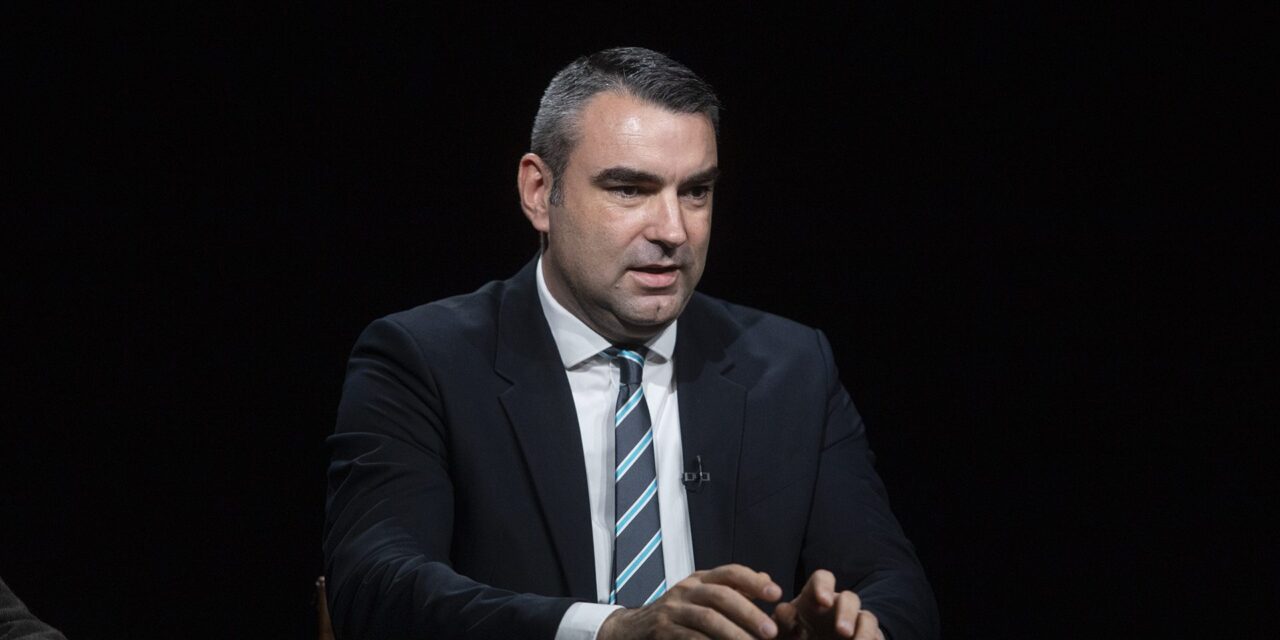– On Wednesday, the European Commission will publish its position on the long-standing matter of money owed to Hungary. Many articles and analyzes have already been published on the subject, but as a first step, perhaps it would be worthwhile to clarify what specific procedures are being carried out against Hungary, and which ones cover what exactly?
- Various reports and procedures have been ongoing between Hungary and the European Union for the past decade, so their transparency requires more thorough information. There are currently three lines of proceedings against Hungary. In accordance with EU treaties, in the event of non- or inadequate implementation of EU law, the European Commission may initiate infringement proceedings against the Member State concerned. Generally, such procedures are ongoing in connection with all member states, in the case of Hungary, such procedures are currently taking place in connection with the Child Protection Act or the exclusion of foreign motorists from the gas price freeze. The committee can refer these cases to the Court of Justice of the European Union and, in case of a conviction, it can also result in fines.
Second, more important and politically more complicated, however, is the procedure under Article 7 of the Treaty on European Union (TEU), which was initiated against our country by the European Parliament in September 2018. In principle, it can be initiated in the event of a clear danger of a serious violation of the values contained in Article 2 of the TEU, such as freedom, democracy, equality or the rule of law, at the initiative of the committee, the European Parliament or one third of the member states, and after that the values already mentioned above - can be initiated in case of established - serious and long-lasting damage.
This type of procedure against Hungary began with the adoption of the European Parliament resolution based on the already famous Sargentini report and has continued ever since.
However, only the European Council and the committee have the authority to initiate the procedure, which already applies sanctions, and it may result in the suspension of the member state's right to vote (in the council) or the restriction of its other EU rights. Fortunately, the sanction of suspension of the right to vote is not applied to our country. The type of procedure most mentioned as part of the rule of law procedure, the so-called rule of law conditionality procedure, is based on the European Parliament and Council legislation adopted on December 16, 2020, officially known as the "regulation on the general system of conditions for the protection of the EU budget". After the Hungarian parliamentary elections in 2022, committee president Ursula von der Leyen announced the initiation of the procedure, during which the legislator connected the violation of the rule of law and the issue of the EU budget and financial management. Within the framework of the procedure, the committee can criticize the member state's compliance with the regulation, identify problems in the use of EU funds by the member state, and ask the member state to remedy the issues. If there is no agreement between the commission and the state concerned, it can make proposals for necessary measures and submit them to the council.
A qualified majority in the European Council, i.e. a unanimous vote of the representatives of at least 15 member states (55 percent), representing at least 65 percent of the population of the Union, is required to accept the proposal. This may lead to the restriction of other EU rights, i.e. the suspension and/or limitation of funds.
Thirdly, in addition to the conditionality procedure, there is a discussion about the nearly six billion euros due to Hungary from the fund aimed at rehabilitating European economies after the coronavirus crisis (recovery and resilience tool). A smaller part of this is a non-refundable grant, and a larger part is a loan taken out jointly by the member states. Formally, this negotiation, which has been going on since 2021, does not take the form of a procedure, rather it represents a political reconciliation of interests, however, the committee linked the outcome of this process to the conditionality procedure in many ways, so it is very difficult to separate the two.
This is also indicated by the fact that the vote for the meeting of the European Council on December 6 was put on the agenda at the same time as the negotiations on the conditionality procedure and the recovery fund.
- We are talking about exactly two types of sources here. Are the funds from the recovery fund, as well as the resources from the seven-year budget, on the table?
– In December 2020, the prime ministers of the member states – somewhere a head of state – voted together in the European Council on the next seven-year budget (2021–2027), the recovery fund and the decree enshrining the rule of law mechanism accompanying both into the EU legal system. The adoption of the decree was not without controversy, the Hungarian and Polish governments expressed their concerns regarding the rule of law mechanism, but in the end everyone voted, with the proviso that the Court of Justice of the European Union will examine the decree thoroughly. The judicial panel's investigation concluded in February 2022 with the conclusion that the legislation complies with EU law, thereby removing all obstacles to its implementation. This development obviously meant that it will be difficult for the Hungarian government to call on the resources due to it under the shadow of a decree that can also be used for political purposes, and we are facing lengthy and complicated legal procedures. This is how it turned out, in September the committee froze the cohesion funds due to our country, i.e. approximately 7.5 billion euros. The disbursement of these funds depends primarily on the outcome of the conditionality (rule of law) procedure, this also applies to the fulfillment of the much-discussed 17 commitments. by complying with a policy-based set of conditions.
"What could be the reason that the whole procedure is taking so long?" Is Brussels blackmailing us?
- EU legislation and law enforcement is a slow process, which is understandable, since it requires the creation of harmony between several different legal systems and the reconciliation of many economic and political interests.
However, the delay of the conditionality procedure concerning the resources goes beyond this, because here the European Parliament - despite the fulfillment of the commitments made by the Hungarian government - does not support the conclusion of the procedure and the release of the community resources due to us, and openly exerts political pressure on the committee, and the European left tries to influence the decision of the council of ministers through the governments of the individual member states. It is clear that
the liberal mainstream tries to impose its political, economic and cultural ideas on Hungary with the help of such legal procedures. This can also be considered blackmail, since as long as the government does not fulfill the highly politically charged expectations of Brussels, they will try in every way to make it impossible for our country to finally get the resources.
We can therefore reasonably expect the procedures to be dragged on unjustifiably and very harmful to European integration.
– Does the introduction of additional conditions mean political pressure? How fair is this legally?
- Due to the politicization of the procedure so far, it could be guessed that, despite the fulfillment of the points agreed in September, the committee will formulate new expectations. This seems to be outlined in connection with the new conditions introduced. According to press reports, judicial reforms may be the next elements of the conditional system, and
it is highly probable that here - behind the seemingly legal questions and expectations aimed at protecting the rule of law - there are actually political considerations and interests,
therefore, the understanding of the issue and the solution will not be exclusively legal in nature. A political agreement must be reached between the parties involved, and that may also bring with it the settlement of the disputes, but this, according to all indications, still has to be waited for. Although the committee did not make a specific promise that it would not impose additional conditions regarding the release of funds, it definitely violates the basic principle of a fair procedure if the list of established and possibly to be established expectations is not announced at the same time, but always new and new in a time-consuming manner conditions are set.
– The left-wing majority of the European Parliament voted to freeze 7.5 billion euros from the seven-year budget. Does this have legal binding force, or is it just political "mischief"?
- It is more relevant than the decision of the European Parliament whether the competent bodies of the committee finally came to the conclusion whether they will recommend to the member states to leave the relevant community resources locked up. The EU finance ministers will decide on the proposals made by the committee, that is, they will decide whether, due to the rule of law proceeding against Hungary, they will continue to suspend part of the EU funds otherwise due to Hungary. However, the official, i.e. legally valid, decision is made by a qualified majority among the ministers, and qualified majority decision-making requires a "double majority": a vote representing 65 percent of the population of the member countries and the vote of 55 percent (but at least 15) of the member countries. All other initiatives can only be of a political nature.
– A similar tussle was observed against Poland. Brussels has agreed with them in principle, but they will not receive any money. Can such a scenario be imagined here?
- The Polish government rightly said that the European Commission is a body financed by the money of tax-paying EU citizens, which should therefore pursue goals that are in line with the interests of the member states. This does not include the practice of arbitrarily trying to extort an action or tolerate something from a member state by means of financial violence or even threats. It cannot be ruled out, but if this were to happen, the committee would be abusing its authority, which, among other things, states that it is called to supervise EU programs and funds, and also, as the "guardian of the treaties", checks the fulfillment of EU legislation in the member states. If, on the other hand, he is blackmailing, then he is acting in bad faith – because the committee knows, or obviously should know, that what he is doing in this case clearly violates the law of the Member State(s).
– What else can Hungary and the Hungarian government do regarding the committee's objections? Can the European Council put pressure on the Commission in this matter, either in a legal or a political sense?
– The European Council is a classically strategic and crisis-solving body. It consists of national leaders, unites the executive power of the member states, and has a significant, very decisive influence in several priority political areas. At the same time, the role of the European Council can also be understood as acting as a "collective head of state" within the institutional system of the European Union, thus representing the community to the outside world. As a result, it must also guard over the political unity of the European Union, otherwise it will show weakness and even risk the disintegration of the community.
The European Council can have the final say in the matter of funds: it can decide to accept the assessment aimed at further freezing the funds, but it can also decide to release the funds.
- Brussels would take out another joint European loan, this time for Ukraine. After not distributing the resources of the recovery fund, the Hungarian government can rightly say that we have had bad experiences with joint borrowing, so we do not support it. Can we replace borrowing by providing funds to Ukraine within the framework of a bilateral agreement?
- A bilateral treaty is strictly an agreement or undertaking of responsibility between two states, which, in terms of its content and complexity, can cover a wide variety of issues, including economic or trade agreements. In the case of our country and Ukraine, such a path is also possible, the sovereign state has the right to decide with which other state it will conclude a bilateral agreement. In a legal sense, the most important thing here is that the agreement reached through negotiations and in writing, signed by the representatives of the two states, is ratified by the legislative authorities of each party. Although currently at war, Ukraine exists under international law as a political entity with its own government and the right to self-determination, i.e. as an independent and sovereign state. This presupposes its legal capacity and possibility to negotiate with other states, for example for the purpose of a bilateral treaty. If not about a specific loan, at least we can talk about the justification of the possible veto right during the voting of the common EU loan and at the same time as a basis for negotiations on other controversial issues.
Source and photo: hirado.hu













